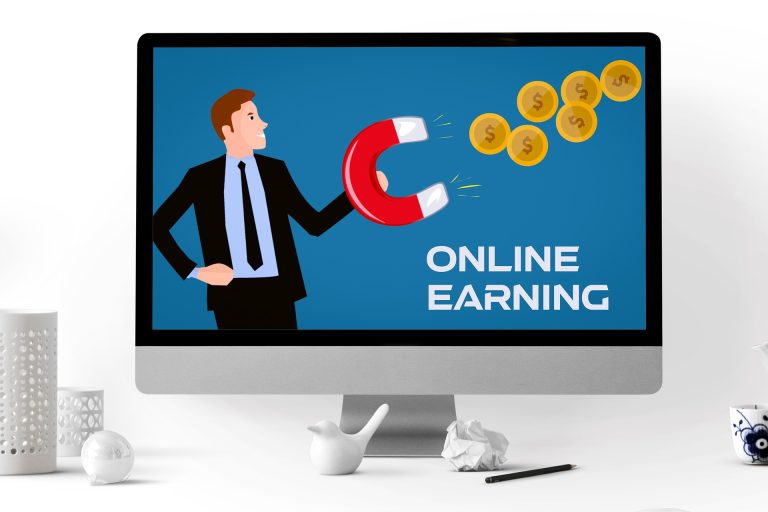What is Freelancing? Unleash Your Earning Potential!
Freelancing is working independently rather than being employed by a company. Specialists offer their abilities and administrations to numerous clients on a extend or errand premise.
Freelancing has become a popular career path for many professionals who seek flexibility and autonomy. With the rise of digital platforms, finding freelance work is easier than ever, allowing individuals to connect with clients from around the world. Freelancers can range from writers, designers, and developers to consultants and other experts.
This work style provides the freedom to choose projects that align with personal interests and strengths. It also requires self-discipline and effective time management to juggle various tasks and deadlines. By embracing freelancing, individuals can build a diverse portfolio and gain a breadth of experience that can enhance their professional value.
The Rise Of Freelancing
The way we work is changing fast. More people choose to freelance each year. They enjoy freedom and flexibility. Companies love this change too. They get abilities from all over the world Let’s explore why freelancing is growing so quickly.
Shifts In The Global Workforce
Technology has changed work forever. Internet makes remote work easy. People can now work from anywhere. This change is big.
- Workers seek better work-life balance.
- Freelancing offers varied job opportunities.
- The digital age supports remote careers.
Countries are noticing this shift. They create laws to help freelancers. This support makes freelancing grow even more.
Economic Factors Fueling Freelancing
Money matters lead to more freelancing. Here are a few reasons:
| Factor | Impact on Freelancing |
| Cost savings | Businesses save money on office space and salaries. |
| Chooses their projects | Assigned projects by their boss |
| Income diversification | Freelancers can work for multiple clients. |
Freelancers often start their own businesses. They contribute to the economy. This growth is not slowing down.
Defining Freelancing
Let’s dive into the world of freelancing. What is it? Envision getting to select your work, your hours, and undoubtedly your working environment. That’s freelancing. It’s a way to do work assignments without being a full-time representative at a company. Freelancers are like their own bosses.
Freelancer Vs. Traditional Employee
| Freelancer | Traditional Employee |
| Chooses their projects | Assigned projects by their boss |
| Works from anywhere | Works at the office |
| Sets their schedule | Follows a fixed schedule |
| Pays their taxes | Taxes are deducted by employer |
Common Freelance Professions
- Writers – They create articles, books, and more.
- Designers – They make websites, logos, and visuals.
- Developers – They build apps and software.
- Photographers – They take and edit photos.
- Consultants – They give expert advice in a field.
Getting Started As A Freelancer
Embarking on a freelance journey opens doors to flexible work hours. Many dream of turning their passion into a profitable career. To start freelancing, know the essentials. Begin with key skills and setting up your business. This guide will pave your path to becoming a successful freelancer.
Essential Skills For Success
- Time management: Organize tasks effectively.
- Communication: Convey ideas clearly.
- Self-discipline: Stay focused on goals.
- Marketing: Promote services confidently.
- Networking: Build strong industry connections.
Setting Up Your Freelance Business
- Choose a specialty that matches your aptitudes.
- Create a catchy brand name.
- Design a professional website.
- Display a portfolio of your work.
- Set clear pricing strategies.
- Learn basic accounting.
- Use contracts for client work.
Finding Freelance Work
Entering the world of freelancing is thrilling. Yet, landing your first gig can be challenging. You must know where to look. This segment guides you through the labyrinth to discover independent work.
Utilizing Online Platforms
Online platforms are goldmines for freelancers. They connect you with clients globally. Here’s how to start:
- Create profiles on popular freelance websites.
- Showcase your skills with a detailed portfolio.
- Offered on ventures that coordinate your expertise.
- Read job descriptions thoroughly before applying.
Platforms like Upwork, Specialist, and Fiverr are awesome beginning focuses. Be persistent and patient. Success takes time.
Networking And Personal Branding
Networking is crucial in the freelance world. Build relationships with industry professionals. Attend webinars and workshops. Engage with peers on social media. Use these tips:
- Join LinkedIn bunches related to your field.
- Share your work on Instagram or Behance.
- Start a blog to demonstrate your expertise.
- Collect and display testimonials from clients.
Personal branding sets you apart. It makes clients notice you. Your brand reflects your values and skills. Keep it professional and consistent.
Pricing Your Services
Setting the right price for your services is key in freelancing. It helps you attract clients and earn what you deserve. Let’s dive into how you can price your services wisely.
Understanding Your Market Value
Knowing your worth is the first step. Research what others charge for similar services. Consider your skills, experience, and the quality you offer.
- Check freelancing platforms for average rates.
- Ask peers in your network about their pricing.
- Adjust for experience: More experience means higher rates.
Strategies For Competitive Pricing
Your price tells a story about your work’s value. Here’s how to set competitive prices.
- Start lower if you’re new, then increase as you gain experience.
- Offer packages to give more options and value to clients.
- Consider project complexity and adjust your rates accordingly.
| Experience Level | Hourly Rate |
| Beginner | $15 – $30 |
| Intermediate | $35 – $50 |
| Expert | $55+ |
Remember, quality justifies higher rates. Don’t sell yourself short. Your skills are valuable.
Managing Freelance Finances
As a freelancer, managing money is key. It can be tricky but it’s crucial. Let’s dive into how you can handle your freelance finances effectively.
Budgeting For Irregular Income
Income varies in freelancing. You need a plan. Here’s how to budget:
- Track expenses: Know where money goes each month.
- Save for lean times: Put money aside when earning more.
- Calculate average: Use past earnings to find a monthly average.
- Adjust spending: Spend less than you earn. Always.
Emergency funds are a safety net. Point to spare three to six months of living costs.
Tax Considerations And Benefits
Taxes can surprise freelancers. Be ready:
| Task | Details |
| Quarterly Taxes | Pay estimated taxes every quarter to avoid penalties. |
| Deductions | Track business expenses. They lower taxable income. |
| Keep Records | Keep receipts and invoices for at least seven years. |
| Client dependency | Seek multiple clients, avoid over-reliance |
Consult a tax professional for personalized advice. They know the tricks.
Growing Your Freelance Business
As a specialist, development is key to your success Expanding your business means more income and opportunities. Let’s dive into how you can grow your freelance venture effectively.
Expanding Your Client Base
To expand your client base, consider these steps:
- Network actively both online and offline.
- Ask for referrals from satisfied customers.
- Collaborate with other freelancers.
Create a portfolio that showcases your best work. This attracts new clients.
Scaling Up And Outsourcing
Scaling your business often requires outsourcing. Here are some tips:
- Identify tasks that you can delegate.
- Hire skilled professionals to save time.
- Use project management tools to stay organized.
Outsourcing lets you center on work that develops your commerce. Keep quality high to satisfy clients.
Challenges And Solutions In Freelancing
Facing the world of freelancing can be thrilling, yet daunting. Freelancers enjoy freedom but also face unique challenges. This section digs into common obstacles and offers practical solutions. Embrace the freelancer journey with confidence.
Dealing With Uncertainty
Freelancing can be unpredictable. Jobs may come and go. Income isn’t always steady. This can cause stress. To combat this, diversification is key. Don’t rely on one client or skill. Build a broad client base. Learn new skills. Save money during high-earning periods. This makes a security net for slower times.
| Challenge | Solution |
| Irregular income | Create a budget, save for lean months |
| Client dependency | Seek multiple clients, avoid over-reliance |
| Job scarcity | Upskill, market services widely |
Maintaining Work-life Balance
Freelancers often struggle with work-life balance. They work at odd hours. They may overwork or underwork. To find balance, set a schedule. Stick to it. Define clear work hours. Make time for rest and hobbies. Use tools to manage tasks and time. This ensures productivity without burnout.
- Set daily goals
- Use time-tracking apps
- Plan breaks and leisure activities
- Define your workspace
- Communicate availability to clients
- Disconnect after work hours
The Future Of Freelancing
The Future of Freelancing shines bright. Many people now choose flexible work over fixed office hours. This change is transforming how we work. Let’s explore what’s next for freelancers.
Trends And Predictions
Freelancing is evolving rapidly. Experts predict these trends:
- Growth in numbers: More people will freelance.
- Diverse skills: Freelancers will learn new skills.
- Remote work tech: New tools will emerge for freelancers.
- Co-working spaces: These will become more popular.
- AI and automation: These will change freelancing jobs.
Freelancing In The Post-pandemic World
The pandemic changed work forever. Here’s how freelancing is adapting:
| Change | Impact on Freelancing |
| Work from home | More people are freelancing. |
| Online collaboration | Teams work together from afar. |
| Global opportunities | Freelancers find work worldwide. |
| Health and wellbeing | Freelancers focus on balance. |
FAQ
What Is Freelancing And How Does It Work?
Freelancing involves self-employed individuals offering services to clients. Freelancers work on a project or contract basis. They choose their clients, set their schedules, and often work remotely. Payment is typically per project, hour, or other agreed terms.
Can Freelancers Make A Good Income?
Yes, freelancers can earn a substantial income. It depends on their skill level, experience, and demand for their services. Successful freelancers often command high rates and have multiple clients, leading to a stable or lucrative income stream.
What Are Popular Freelancing Jobs?
Popular outsourcing employments incorporate composing, realistic plan,web improvement, computerized promoting, and virtual help. Fields like photography, consulting, and translation are also common. The gig economy continues to expand, diversifying freelancing opportunities.
How Do I Start Freelancing?
To start freelancing, identify your marketable skills and create a portfolio. Next, choose a freelancing platform or network to find clients. Set competitive rates, and begin pitching your services. Building a strong online presence and client relations is crucial for growth.
Conclusion
Freelancing offers a flexible path to career satisfaction. It caters to those valuing autonomy and diverse opportunities. Embracing this model means tapping into a global market, right from your home. Whether you’re starting out or seeking growth, freelancing could be your key to a fulfilling professional journey. Remember, success in freelancing hinges on skill, perseverance, and adaptability.
To Know More Click Here


